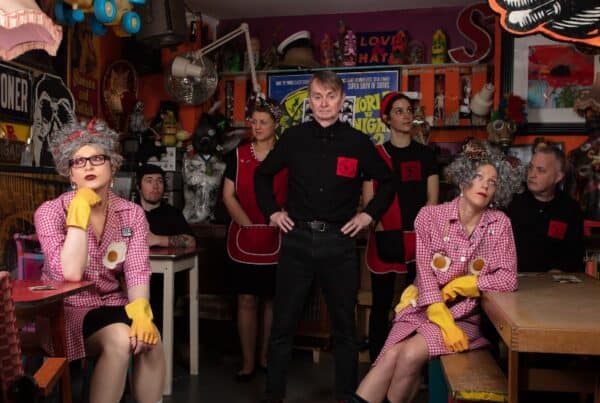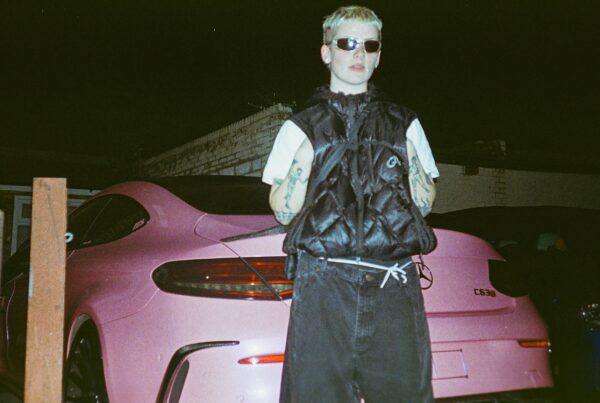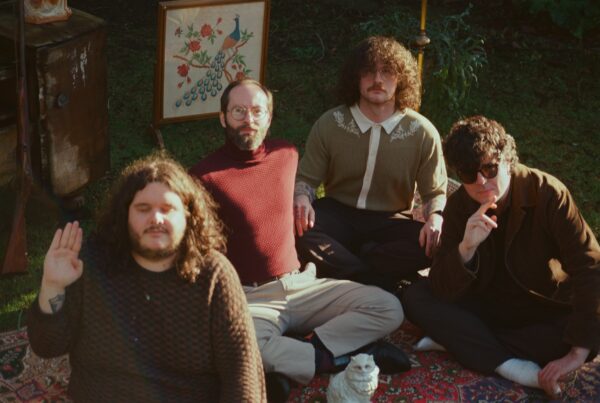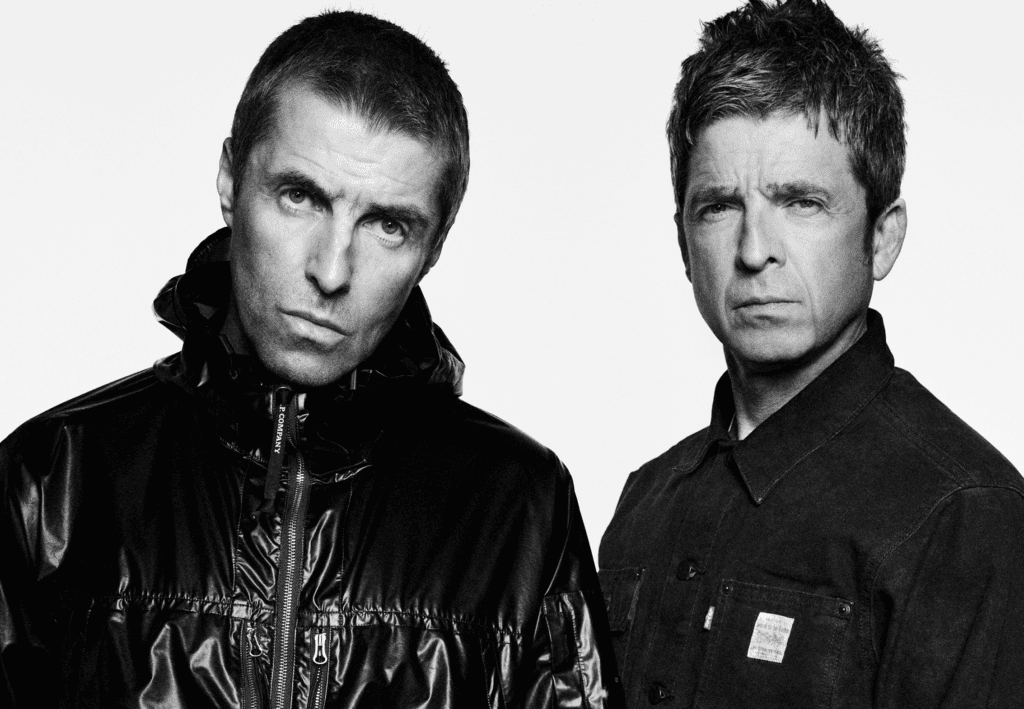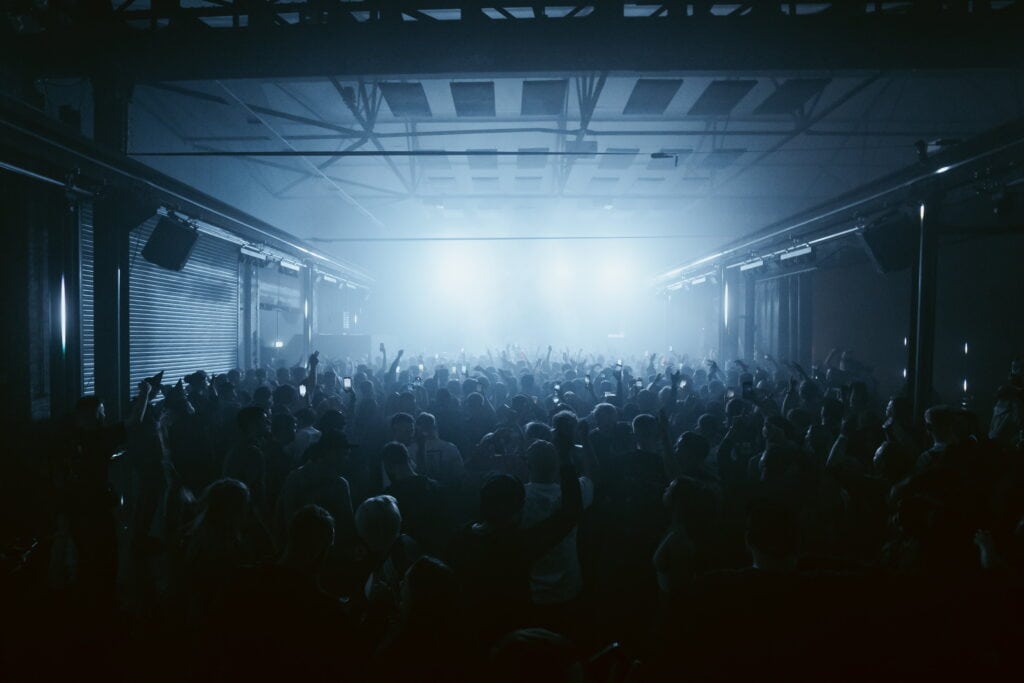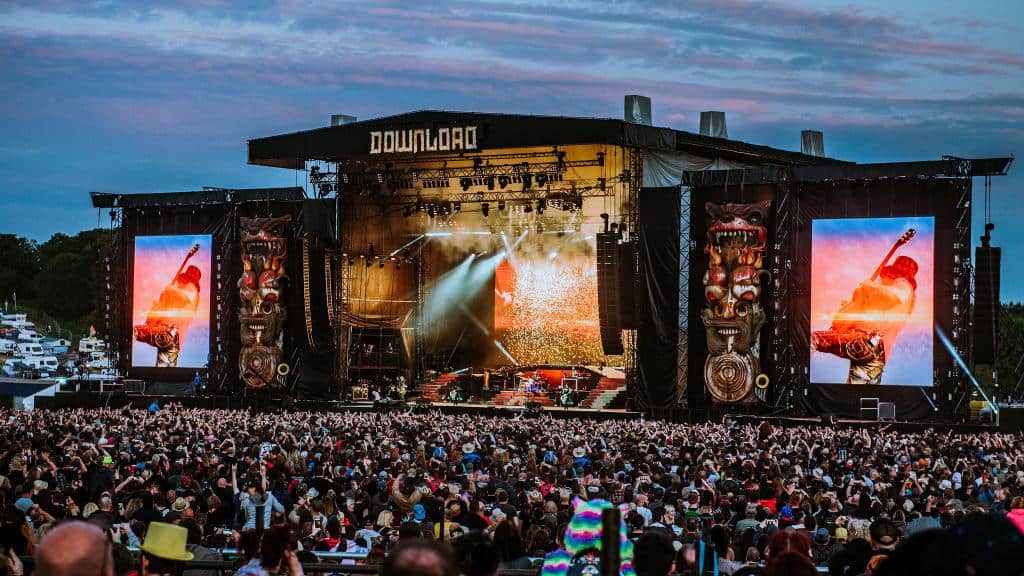There have been many discussions recently about what it is really like to be affected by misogyny in the music industry. It seems like sexism has seeped its way into the deepest corners of our careers, and there is no escaping the infantilisation, sexualisation and intimidation. Although the percentage of women in the music industry (49.6%) is higher than the percentage of men in the music industry (48.8%), women make up a larger percentage of entry-level and apprentice/intern roles, and this number declines in correlation to positions of seniority (UK Music Diversity Report 2020). This needs to change.

Women in the music industry deserve respect, no matter what job they have.
I reached out to multiple women in the music industry to ask about about the misogyny they face, and how the industry can initiate a change in regard to sexism.
Marine Eltalkhawi, cofounder of ANTI Magazine, content creator and concert photographer revealed an experience that has stayed with her. “Pre-COVID I was a concert photographer. It’s always been one of my biggest pleasures and passions in life. Sometimes even in your happiest moments there can be dents of discomfort. I was in the photo pit waiting for the main act and I was getting my camera settings ready and enjoying the vibe of the atmosphere. It was until these grown men, in their 50’s it looked like, started talking to me and asked what I’m doing. I kindly told them I do concert photography and they were chuckling, finding amusement in it. I didn’t think much of it, they even asked me to take a picture of them on one of their phones and I didn’t mind. It wasn’t until the one man in the middle handed me a bill of maybe $5 or $10 and smirked, asking me if I could go to the bar and said “if you’re working you might as well make use of your waiting and get us a drink,” and I was appalled by his behaviour. I was just in too much shock to register what he said. But it clicked and I shook my head, declining his offer. I told him I’m not able to do that, just to avoid further conflict. I wanted to keep it simple and not cause trouble. I felt objectified and lessened by three of these men though. I’m truly not expecting them to understand my job, but to ask a young woman (I was 22 at the time) to leave her spot to serve a drink to you at a barricade like I’m your butler was not only rude but incredibly misogynistic. I’m not sure where the humour was, I don’t know if it went over my head. But, I thankfully still made the most of my night. It was just an experience that I would have rather not gone through, these men clearly showed where they stand with women and it’s not a stance I’m thrilled about at all. These situations happen to women in this field more than meets the eye. It’s incredibly concerning and scary, even, and awareness must be brought to it.”
Nea Nordling has worked in artist booking, as a stagehand at gigs and is currently studying event management. She has experienced sexism both as an audience member and as a stagehand. “I’m so used to sexism everywhere; it mostly gets to me on a general level. If anything, it makes me work harder because I feel the need to prove myself, but obviously I shouldn’t need to feel that way.”
Alicia Rosanna is a concert photographer who opened up about her experiences. “I was in Leeds at a show with friends, and the opening act had posted on his social media that day about needing a photographer for the next show, in London. I approached him at the show, but he dismissed me, saying that he needed someone ‘professional’. It hasn’t affected the way that I work, but I feel like I have to act in a certain way to be taken seriously. You can’t show too much enthusiasm for the band or be a fan of the band, you can’t dress or act a certain way. You really have to show the team that you’re doing it for the art of photography, and not to get closer to the band. It’s definitely a society thing – you can’t work in the music industry because you want to, you want to get closer to the men in the music industry. It’s the “who are you sleeping with?” thing.
Leana Richardson is currently studying audio engineering and music production, with the goal to get into show production. She commented, “I haven’t experienced sexism, but I get intimidated by men in the industry and I’m scared of the sexism and being sexualised because I’m a woman. People should be more accepting of others and not judge anybody because of their sex, race or sexuality.”
This conversation poses the question, how can we improve the music industry for women?
“At venues, someone should be responsible,” stated Alicia Rosanna. “Employees should be kept educated. People who think this way aren’t going to change their minds. There should be policies to stop sexism at venues.” She further asked women to “keep talking about your experiences. We have to learn to stand up for ourselves, and that we can be ourselves. Our feelings are valid.” “It’s so much more fun watching artist interviews when the interviewer is a fan. Fan girls are going to take over the music industry.”
Nea Nordling commented, “I feel like people need to be more vocal about the stuff they face, but the fear of a negative reception and hurting professional relationships is real. In the industry, you’re as good as your contacts and being a ‘difficult woman’ may earn you a bad reputation. I don’t believe in artificial diversity where you have to hire women and minorities just to look good, there needs to be a genuine shift in people’s attitudes and views of women.” When asked about what can be done to get more women into the music industry, Nordling replied, “as long as there is sexism, there will be sexism in the music industry. It thrives in male dominated fields. I think it needs to go deeper than ‘getting women into music.’ More women will be in music once the issues are fixed in society as a whole. That, and just encouraging women to get into the field, even if it’s tough.”
Marine Eltalkhawi stated that she feels “men should be held accountable for more, especially by other men that truly believe women deserve equal respect and to feel safer in the workspace. For example, men should tell their friends that jokes that are harmful to women are inappropriate, no means no, remind them that catcalling is harassment and touching their lower backs to pass by is invading personal space, to name a few. In a work sense, women should be looked at as equal, in both competence and level of respect. Until men prove with more than their words that they respect women, with their efforts to make the world safer for us, we will have every right to fear all men. It really starts with them.”
“I feel like there’s already women that want to be involved in music, but they’re scared,” Leana Richardson commented. “I think if we break this stigma that women can’t be producers or audio engineers or even roadies, we won’t have an issue. Maybe if people can promote or advertise more women working in the industry, it will inspire women to get into the industry, because everybody deserves a chance to do what they do.”
I had a conversation with Angela Vowels about her experience in the music industry and music education.
“One of the things that I have to address is ageism. I’m in my 50’s now, and I’ve chosen to go back into education to do a doctorate in my 50s, and for me that’s the best time to do it because you have all this experience, but to society, and the way we are, and our culture, to everyone else I’m just an old woman who’s hanging onto her youth. It’s incredibly frustrating because you know you’ve got what it takes, and you know you’ve got good ideas, but everyone just looks at you and is like, ‘oh, just leave it to the young people.’”
“One thing I’m trying to do is address the stereotypical woman. Comes out all gorgeous and bums and boobs and sings pop songs. And this is being taught to our children, that this is how you’re accepted in society. And because of that, you only have a lifespan in music for about, I wouldn’t even say 20 years, I’d say 10.”
Do you have any experiences of sexism in the music industry that stick with you?
“When I was choosing my career path, I had to go into teaching because there wasn’t anything for me in 2000 that I could do as a job and because I was a woman – I was working with Justine Flynn at the time, and we were trying to set out as audio visual artists, and arts funding was really poor. But we were looked upon as girls playing with boy’s stuff, because we were technology experts, we were dealing with sensors and using music technology. We were looked upon as ‘oh, they’ll only do it for a certain amount of time, then they will have to go off and get married.’ 20 years ago I was in a classroom full of men or boys, you know, and there was one of me, and I came back after 20 years, and there’s still one of me.”
How can we improve women’s experiences in the music industry?
“I think the whole way we address this is that we change our language. You know, we’re living in a man’s world, we always have been, we’ve always been a kind of second sex to quote Simone de Beauvoir – the only way that things can change is by changing ourselves and hope that everyone else does the same. We have to be able to stick up for ourselves and say you know, ‘those remarks that you’re making, you do realise I can prosecute you, or you know you can’t talk to me like that, there’s legislation out there that says that you can be awarded some sort of fine for it.”
“What can we do to make ourselves stronger? Initiating that change is changing the way that we speak, in the way that we use our language, that we’re not being different because we’re noticing the difference, we’re being equal.”
Women in music deserve respect. The playing field we’ve been fighting on is rigged in favour of the other team, when it shouldn’t be a game in the first place. The music industry should be a haven of freedom, inclusivity and access at all levels. I think it’s time we make it that way.
Find the people involved in this article’s work here:
Marine Eltalkhawi: marinesphtotos.com
Angela Vowels: https://angelavowlesjv31.wixsite.com/vowels
Alicia Rosanna: Instagram – @rosiaphoto
Other female creatives that you should know:
SEVEN: Instagram – sevensketchbook
LANEIA: poplme.co/laneia/
Justine Flynn: JustineFlynnsonicart.org
Emmi Sollie: emmisollie.carrd.co
Belle: lnk.to/adction?prerelease_service
Words: Maia Barker

